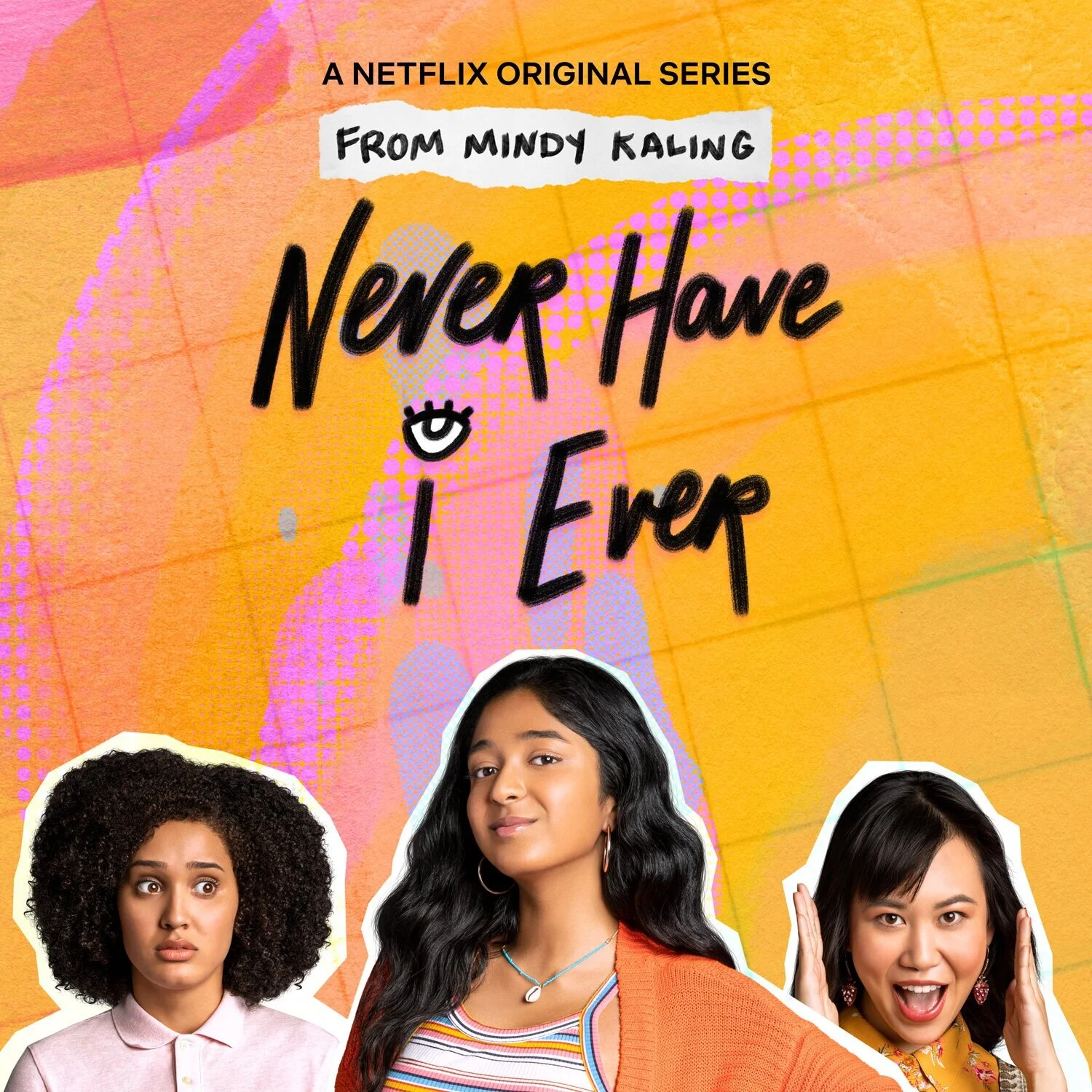BY School of Sexuality Education’S GAYATHIRI KAMALAKANTHAN.
The popular Netflix show Never Have I Ever centres an Indian-American highschool girl exploring her sexuality and her intersectional identity. Part 1 of my response explored some teachable moments within the show on topics such as communication and sex positivity, the virginity myth, the construction of disability as a problem and casteism.
I enjoyed season 1, however it is important to recognise that there are some problematic issues within the show. As a sex and relationships education facilitator, as well as a practising Hindu, I wanted to map out some parts of the script that I hope can be addressed in series 2. This response will explore themes including Islamophobia, internalised oppression within the south asian community, casteism and Tamil identity.
1. Portrayal and response to Islamophobia
Nalini: That’s Jaya Kuyavar. She came from Chennai, went to UCLA for her doctorate, parents found her a nice boy back home to marry. Then she ran off with an American man. A Muslim. Parents never spoke to her again.
Kamala: Did they come for the wedding?
Nalini: Are you out of your mind? You heard me say he was a Muslim.
(episode 4)
Speaking from experience, this conversation accurately portrays the Islamaphobic views held by some people that I know in the Hindu, South Asian community. It was disappointing that Kamala did not challenge her aunt’s passive aggressive rejection of Jaya. I wanted her to go and sit with Jaya in bold defiance of Nalini’s casteism and Islamophobia. However, this conflict avoidance did fit with Kamala’s character and spoke to my own experience of wanting to ‘give up’ in what often feels like a losing battle against prejudiced family members.
Personally, the journey of addressing Islamophobic (and racist / sexist / queerphobic) views held by my family can and has been a slow, angry and damaging process. But what would be the alternative? If we keep choosing silence in order to maintain peace, whilst people casually perpetuate the demonisation of certain communities, nothing will ever change.
I can see why Kamala did not intervene as a bystander in this instance, but as these characters grow in confidence and discover their motivations, the show needs to assert them as people who are willing to stand up for equality. I don’t think it is too much to ask for there to be representation of an Indian person who challenges the exclusion of minority groups - especially given the Indian government’s current right-wing, anti-Muslim stance.
2. Internalised oppression
Kamala: So you’re ultimately very happy with your decision, even though you got divorced?
Jaya: Of course not. No. I mean look at me. My closest Indian friend is a woman I met seven minutes ago. No, I wish I had just listened to my family and married the guy that they chose. Then maybe I wouldn’t be divorced.
At the end of the conversation…
Jaya: Good luck on your engagement and don’t screw it up, yh?
(episode 4)
I can absolutely understand why this conversation was written. It’s honest and reflective of what continues to happen within the South Asian diaspora. Indeed, ‘what will people think?’ is a question I am constantly battling against. Nevertheless, I found the conclusion of this scene deeply disturbing. It implies that the breakdown of Jaya’s marriage was a consequence of her marrying a Muslim, and not the simple fact that 42% of marriages end in divorce. It deepens and excuses Islamophobia within the community, especially regarding the taboo of interfaith relationships.
The writers had the perfect opportunity to challenge the current rise in Islamophobia in Indian politics, and to create a healing, empathetic and difference-embracing moment, but failed to do so. They had the chance to portray the power of female-to-female acceptance and empowerment but instead they shamed a woman (Jaya) for making an independent decision about her life, before making her do the same thing to another. This internalised, intergenerational and peer-on-peer oppression needs to stop and we need fair representations to learn from.
In this report, Equality Labs outlines how caste-based discrimination affects the South Asian American diaspora. As a Tamil British person, I am acutely aware of how the caste system, anti-Blackness and Islamophobia is still at play within my South Asian circles. I have been told multiple times by random members of the community that if I married ‘outside of our caste’ or to a ‘muslim or black man’ (note: zero awareness of queerness), that they would not associate with me thereafter. My response? We need to unlearn hate together. Either that, or I will not associate myself with you. Challenging this kind of bigotry within our communities is a must.
Equality Labs graph shows % of people rejected by a partner on the basis of caste.
Of course, writers have the right to create whatever they want, but it is my hope that people with privilege use their platforms to challenge oppressive narratives and showcase positive interfaith relationships.
3. ‘Tamil’ is a language and an ethinic identity
I was delighted to hear Tamil spoken on a Netflix TV show. Finally something to point to when asked ‘what is Tamil?’
Maitreyi Ramakrishnan, (Devi in Never Have I Ever), is a young Tamil-Canadian actress and speaks unapologetically about her Tamil-Canadian identity. In one interview she says “my identity isn’t being Sri Lankan. That’s not my country. My country is Canada. But my culture is definitely Tamil”.
In the article, Radheyan Simonpillai explains that ‘like so many Tamil-Canadians, [Maitreyi] comes from a family that escaped war in Sri Lanka and arrived in Canada as refugees. We typically refuse to identify as Sri Lankan because that would mean claiming a country that tried to wipe out our people.’ This is exactly how I feel about my not-home country and why I cringe and change the subject when people make unsolicited comments about how I ‘must visit [my] homeland’.
I love that Ramakrishnan seems to be a no nonsense individual who speaks about her cultural identity with confidence. After the show was released, Ramakrishnan tweeted, ‘Devi does not represent the ENTIRETY of the South Asian community. She is merely one story influenced by real life experience. There are still many stories waiting to be told. This is one of many steps forward in a much longer race.
I’m definitely here for this and am looking forward to what season 2 could be.
TV is a powerful tool that can shape how we think about sex, identity and relationships. Based on the themes in the show so far, here’s a round up of what I’d love to see addressed in season 2 :
Specific communication and learning about pleasure.
How do people learn to kiss their partners in a way which is pleasing to all involved?
The experience of learning someone’s body can be funny, silly, clumsy and lovely! How can this be shown authentically?
Discussion about healthy porn usage, without stigma.
The average age that a young person accesses porn for the first time is 11.
How could the show encourage some critical thinking around the realities of sex vs sex we see in porn?
‘Menstruation impurity’ taboos within the Hindu community.
Many people within the Hindu community view menstruation as ‘dirty’ and ‘embarrassing’.
This, along with a lack of teaching on menstrual literacy has resulted in menstruating people being banned from temples as well as high absenteeism and drop out rates from school.
How can the show address this long standing taboo?
Caste-based discrimination, why it continues and how it can be challenged at an individual/community/national level.
Can Devi and/or Kamala challenge their family on their caste-based choices?
Is this something that can be brought up at one of Devi’s Model UN days?
Islamophobia, why it continues and how it can be challenged at an individual/community/national level.
Could the show model a positive Muslim-Hindu relationship/friendship?
Could Devi challenge and unpack her community’s prejudice in a conversation with her mum?
Could this be discussed in a school lesson?
Check out our Teachable Moments for students.
Our book ‘Sex Ed: An Inclusive Teenage Guide to Sex and Relationships’ is out now.
Support organisations:


